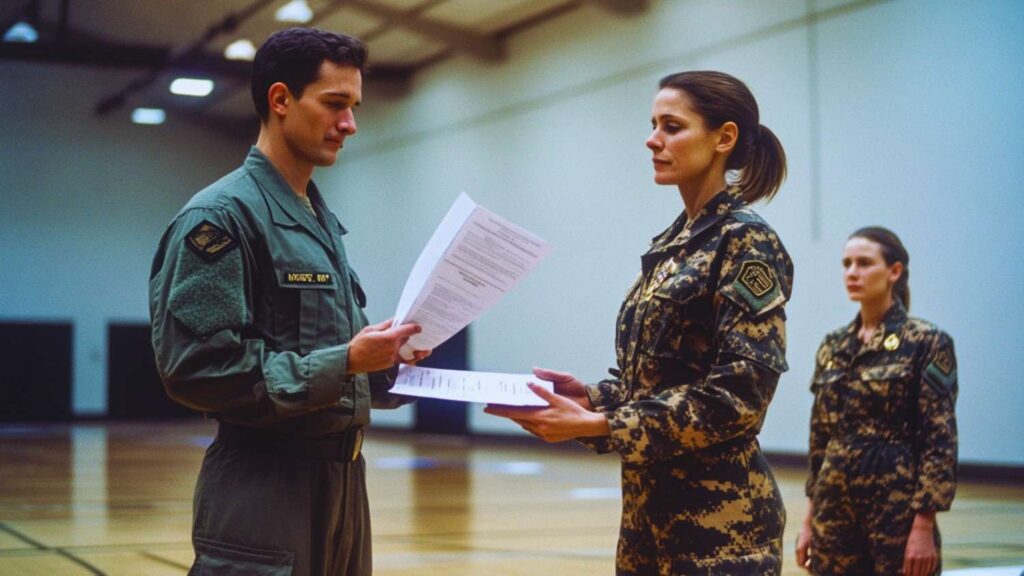Solving the Talent Gap in Defense Recruiting: Fresh Approaches for 2025

The defense industry is undergoing transformative changes, with technological advancements and geopolitical factors creating an ever-growing demand for specialized talent. However, bridging the talent gap in defense recruiting remains a significant challenge. Executive search firms play a crucial role in addressing this need by adopting innovative approaches that align with the unique demands of this field.
Leveraging Decades of Expertise in Defense Recruitment
Effective defense recruitment goes beyond filling executive roles. It ensures leadership aligns with mission-critical objectives. The defense sector requires executives with expertise in risk management, procurement cycles, and classified program oversight. Organizations must prioritize leaders who can navigate regulatory complexities, drive innovation, and maintain operational readiness. A strategic approach to executive hiring strengthens resilience and keeps defense organizations competitive in an evolving security landscape.
A Proven Track Record in Defense Executive Search
Successful defense executive search requires a strategic approach that aligns leadership with mission objectives, regulatory demands, and evolving industry challenges. A refined recruitment strategy ensures organizations secure leaders who drive innovation and maintain operational excellence. Key factors in effective defense hiring include:
- Mission Alignment – Identifying executives with the expertise and leadership approach to support an organization’s strategic goals.
- Regulatory Expertise – Prioritizing candidates who understand defense compliance, procurement cycles, and security clearances.
- Leadership Resilience – Selecting individuals who can adapt to shifting defense priorities, geopolitical challenges, and emerging threats.
By implementing a precise and methodical search process, defense organizations can build leadership teams that sustain operational readiness, foster technological advancement, and ensure long-term success.
Comprehensive Knowledge of Defense Systems and Components
Recruitment in the defense sector requires a nuanced understanding of the supply chain, from Original Equipment Manufacturers (OEMs) to subsystem integrators and Maintenance, Repair, and Overhaul (MRO) providers. Leadership roles in these areas demand candidates with specialized skills that align with highly specific operational requirements.
This comprehensive approach has proven effective in sourcing talent for:
- Aerostructures, Engines, and Defense Electronics: These roles demand precision and a deep understanding of advanced technologies to manage large-scale, mission-critical projects.
- Precision Components, Sensors, and Satellite Systems: Leaders in these areas must combine technical know-how with strategic oversight to ensure reliability and innovation in highly sensitive applications.
- Engineering and Project Management: Effective engineering and project management are fundamental to keeping defense initiatives on time and within budget. Talented leaders in these roles bring proven expertise in managing intricate timelines, resource allocation, and stakeholder collaboration.
The defense industry’s challenges are unique and ever-changing, but decades of specialized expertise in recruitment have demonstrated how tailored strategies can bridge talent gaps and strengthen leadership teams. This approach is vital in ensuring that the sector continues to thrive, innovate, and adapt to future challenges.
Performance-Based Executive Search for Defense Talent
Finding the right leadership in the defense industry requires a system rooted in precision and results. A performance-based approach ensures that every executive placement is aligned with the organization’s unique goals, addressing specific challenges while driving measurable outcomes. By integrating strategies tailored to defense force recruiting, this approach identifies candidates who can deliver both immediate impact and long-term value.
Building Role-Specific Position Profiles
A structured, role-specific position profile is essential for identifying defense executives who can drive mission success. Instead of relying on generic job descriptions, organizations should focus on defining:
- Key Performance Outcomes – Clear, measurable objectives that outline what the executive must accomplish in the role.
- Cultural and Operational Fit – Assessing how a candidate’s leadership style, decision-making approach, and industry experience align with the organization’s structure and mission.
- Specialized Role Requirements – Identifying essential skills, security clearances, and domain expertise needed for leadership in classified projects, defense contracts, and high-stakes operational environments.
By refining these criteria upfront, defense organizations can attract top-performing candidates who are not only qualified but also motivated to deliver long-term impact.
Streamlined Talent Pipeline
Building a robust talent pipeline is critical to ensuring a successful search. For each executive placement, a targeted pool of over 200 candidates is developed, leveraging in-depth research and industry insights. From this pipeline, only the top-tier candidates are carefully vetted and presented.
Each submission includes:
- Comprehensive Career Summaries: Detailed reports highlighting achievements, experience, and relevant expertise.
- Performance-Based Analysis: Insights into the candidate’s ability to meet the specific outcomes required by the position.
- Relocation and Compensation Factors: A thorough understanding of logistical considerations to ensure alignment with both the candidate and the organization.
This meticulous approach enables the identification of candidates who excel in their fields and are well-equipped to drive success. With a focus on efficiency and precision, this process ensures that only the most qualified individuals are presented for consideration, saving time while maintaining a high standard of excellence.
Addressing the Evolving Demands of Defense Leadership
The defense sector is rapidly evolving, driven by technological advancements and the need for innovation in a competitive global landscape. Leadership in this space must go beyond traditional expertise to navigate complex challenges, from cybersecurity threats to operational streamlining. Organizations require leaders with the vision and agility to adapt to these dynamics while maintaining strategic focus.
Adapting to Emerging Challenges in Defense Recruiting
The evolving defense landscape demands leaders who possess both deep technical expertise and the ability to navigate cross-functional challenges. As defense organizations face rapid advancements in technology, shifting security threats, and evolving regulatory landscapes, hiring strategies must adapt to identify executives with:
- Cybersecurity and Systems Expertise – Leaders who understand secure defense systems, digital warfare, and threat mitigation strategies to protect critical infrastructure.
- Operational and Engineering Leadership – Executives who balance technical acumen with strategic decision-making to enhance mission readiness and program execution.
- Multidisciplinary Capabilities – Professionals who integrate technical innovation with business strategy, ensuring seamless collaboration across procurement, compliance, and program management.
By prioritizing adaptable, forward-thinking leaders, defense organizations can secure talent that not only meets current operational demands but also drives long-term innovation and resilience.
Leadership Development for Long-Term Success
Effective leadership in the defense industry isn’t just about immediate performance—it’s about building a foundation for sustained organizational growth. This requires a focus on long-term leadership development that incorporates:
- Succession Planning: Identifying leaders who can build and nurture a strong pipeline of future talent, ensuring continuity and organizational stability.
- Cultural Alignment: Selecting candidates who integrate seamlessly into the existing team, fostering collaboration and enhancing performance.
- Maximizing Impact: Supporting the transition and onboarding process for new hires to ensure they deliver results from day one.
By aligning leadership development strategies with organizational goals, companies can cultivate resilient leadership teams that drive success well into the future.
The Role of Employer Branding in Defense Recruitment
In a highly competitive hiring landscape, employer branding has become a critical strategy for attracting and retaining top-tier talent in the defense industry. Prospective candidates are drawn to organizations that not only align with their professional goals but also reflect their values and priorities. Establishing a strong employer brand positions organizations as desirable workplaces capable of securing the industry’s best minds.
Communicating a Mission-Driven Vision
Defense professionals are motivated by purpose. Organizations that clearly articulate their mission can better resonate with candidates who prioritize meaningful contributions. Effective strategies for showcasing a mission-driven vision include:
- Highlighting Impactful Projects: Share the role your organization plays in advancing global security and developing cutting-edge defense technologies. Demonstrate how employees contribute to meaningful initiatives that influence the industry and beyond.
- Focusing on Career Growth: Outline clear pathways for advancement within the organization, emphasizing opportunities for continuous learning and leadership development.
- Building Transparency and Engagement: Foster trust through open communication about organizational values, objectives, and employee development initiatives. Engaged candidates are more likely to see themselves thriving within the company culture.
By underscoring a commitment to innovation, national security, and professional development, organizations can inspire candidates to view them as employers and partners in achieving their career aspirations.
Differentiating with Industry-Leading Results
Standing out in the defense sector requires more than technical excellence—it demands a reputation for transformative impact. Organizations can establish this by showcasing their ability to deliver results that surpass expectations. Key differentiators include:
- Revenue Growth and Efficiency: Highlight how leadership and innovation have driven measurable success in meeting operational and financial goals.
- Strengthened Organizational Culture: Demonstrate a focus on collaboration, diversity, and inclusion to foster a dynamic, high-performing workplace.
- Achievement of Strategic Objectives: Showcase examples of long-term goals met through strategic planning and exceptional leadership.
By demonstrating their value as forward-thinking, high-achieving organizations, defense companies can position themselves as leaders in the field, ensuring they attract and retain the most talented professionals.
Partner with BOB Search for Defense Talent Solutions
With over 40 years of experience, BOB Search stands as a trusted leader in defense executive search. Our proven methodologies, deep industry expertise, and unwavering commitment to excellence position us as the premier choice for defense contractors and organizations seeking transformative leadership solutions.
If your organization is ready to overcome the challenges of the talent gap and secure visionary leaders who can shape the future of the defense industry, BOB Search is here to assist. Contact BOB Search today to learn how our comprehensive approach to executive recruitment can elevate your leadership team and position your organization for sustained success in 2025 and beyond.


























